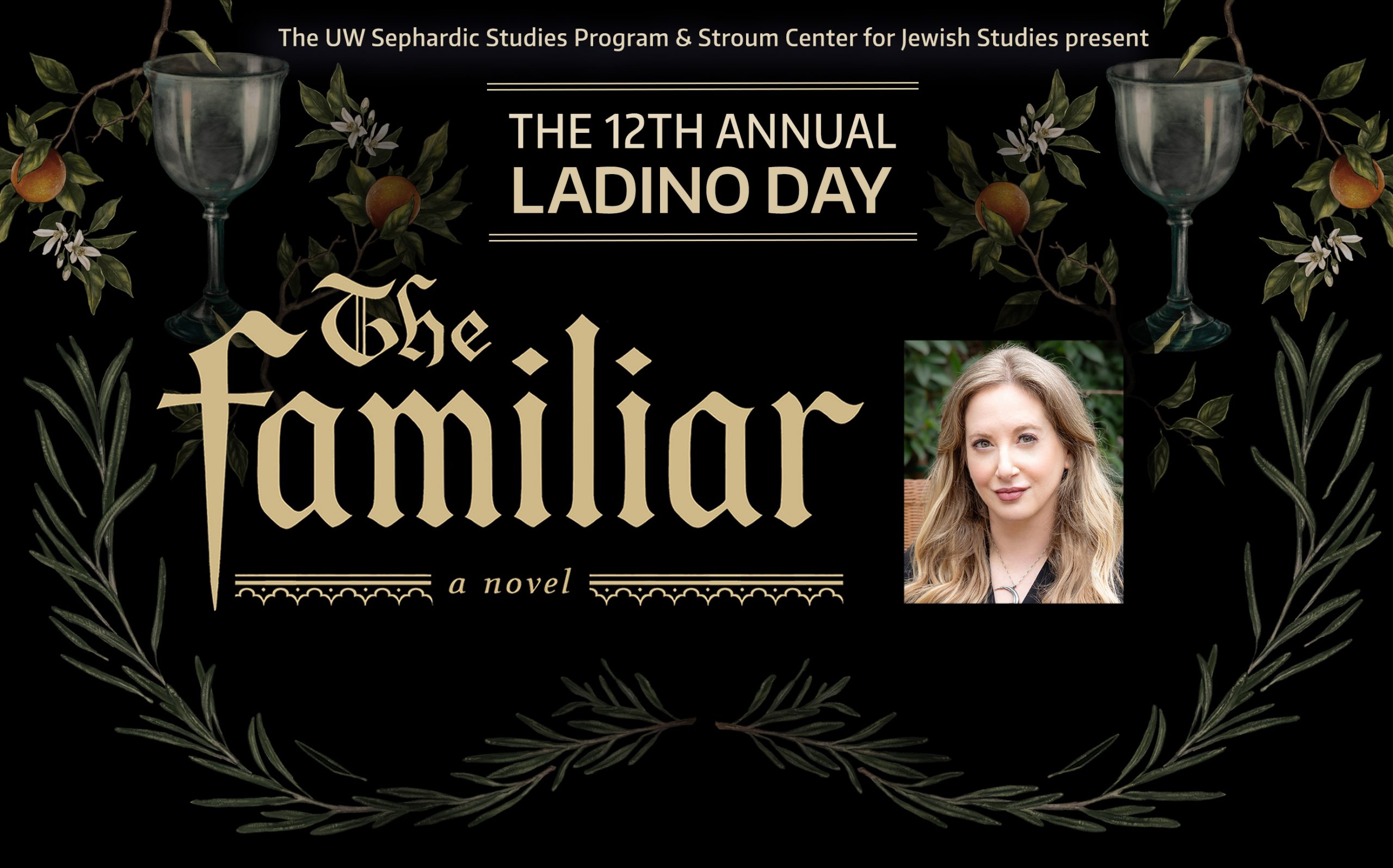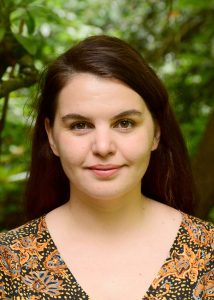

12/8 LADINO DAY | “The Familiar” with Author Leigh Bardugo
Sunday, December 8, 2024, 10:00 am PST - 11:30 am PST
In Ladino Day 2024, acclaimed fantasy author Leigh Bardugo (“Shadow and Bone”) discusses her new novel, “The Familiar,” which features a Sephardic Jewish heroine in 16th-century Spain who draws magic and power from her family’s secret language, Ladino, also known as Judeo-Spanish.
About the event
In this event, author Leigh Bardugo discusses her new novel, “The Familiar,” and its use of Ladino (Judeo-Spanish) with UW faculty member Canan Bolel, Assistant Professor of Middle Eastern Languages and Cultures.
In the novel, Bardugo follows the struggles of a “converso” heroine — from a family forced to convert to Christianity and keep its Jewish heritage secret in 16th-century Spain — who draws magic from her family’s secret language, Ladino, and the refranes (sayings) that preserve Sephardic Jewish wit and wisdom across time.
In the conversation, Bardguo discusses what drew her to this story and setting, how she wove Ladino into her narrative, the family history that inspired her, and the collaboration with Bolel that led to the selection of refranes included in the book.
About Leigh Bardugo & Canan Bolel
 Leigh Bardugo is the New York Times bestselling author of “The Familiar” and “Ninth House,” and is the creator of the Grishaverse (now a Netflix original series) which spans the Shadow and Bone trilogy, the Six of Crows duology, the King of Scars duology. Her short fiction has appeared in multiple anthologies. She lives in Los Angeles and is an associate fellow of Pauli Murray College at Yale University.
Leigh Bardugo is the New York Times bestselling author of “The Familiar” and “Ninth House,” and is the creator of the Grishaverse (now a Netflix original series) which spans the Shadow and Bone trilogy, the Six of Crows duology, the King of Scars duology. Her short fiction has appeared in multiple anthologies. She lives in Los Angeles and is an associate fellow of Pauli Murray College at Yale University. Canan Bolel is a historian of the Ottoman Empire’s Jewish communities and is an assistant professor in the Department of Middle Eastern Languages and Cultures. Her first book project, “Constructions of Jewish Modernity and Marginality in Izmir, 1860–1907,” explores how Sephardic Jews constituted their identities in imperial and communal settings, focusing on marginalized Jews — the diseased, criminals, and converts to Christianity. She teaches courses on Ladino every year at the UW, and consulted on the use of Ladino in “The Familiar.”
Canan Bolel is a historian of the Ottoman Empire’s Jewish communities and is an assistant professor in the Department of Middle Eastern Languages and Cultures. Her first book project, “Constructions of Jewish Modernity and Marginality in Izmir, 1860–1907,” explores how Sephardic Jews constituted their identities in imperial and communal settings, focusing on marginalized Jews — the diseased, criminals, and converts to Christianity. She teaches courses on Ladino every year at the UW, and consulted on the use of Ladino in “The Familiar.”
Ladino Day 2024 is supported by the Lucie Benveniste Kavesh Endowed Fund for Sephardic Studies. This event is cosponsored by the Departments of History, Middle Eastern Languages & Cultures, Spanish & Portuguese Studies and the Arts & Sciences Humanities Division at the University of Washington, as well as the American Ladino League, Congregation Ezra Bessaroth, the Seattle Sephardic Network and the Sephardic Bikur Holim Congregation.
